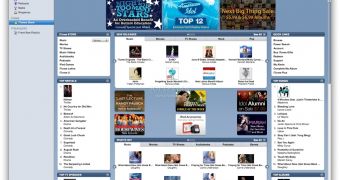As many as 15 states and the District of Columbia two years ago said that digital downloads should be taxed. New Jersey, Indiana, Utah, South Dakota, Nebraska, Wisconsin and Massachusetts have since jumped in to "study" new iTunes taxes. Ever more, statesmen are now proposing new laws to tax digital downloads. That includes music, video, and books. Why, you ask? To fill up the (cash) gaps they themselves have probably created in the first place.
"I wouldn't be surprised to see other states attempting to impose taxes on digital goods," said Stephen Kranz, an attorney who represents a group of Fortune 500 digital goods vendors who are, of course, against new taxes.
Some of you are probably asking "why the heck now?!" Well, as this CNET News piece reveals (although one could figure this out without reading it first), it was only a few years ago that music downloads started to become widely embraced. Plus, tax laws generally apply only to tangible goods. A download is not tangible, unless you stick your tongue to the Ethernet cable to feel the song coming. Don't try that, by the way.
Where were we? A yes. Music downloads. Amazon.com, eMusic, Rhapsody, Wal-Mart and a few others have captured politicians' attention with iTunes alone being responsible for a massive 4 billion downloaded songs, reported February, this year. You'd think that California, looking at an $8 billion deficit, is going to notice...
The same source reveals that state legislature is considering this bill that calls for new taxes to sweep in "digital property." This "includes, but is not limited to, music, movies, and books." It is argued that such taxes are likely to affect "everything, from electronic tax-preparation services to video games to advertising," the same source posts.
The Assembly Committee on Revenue and Taxation is also said to have taken a closer look at the upper-mentioned bill. Reportedly, it concluded that it is "imperative" for California to rewrite its tax laws to reflect an increased "amount of transactions in this state involving the electronic transmission of information and 'digital property.'"
Democratic Assemblyman Charles Calderon, who represents a district east of Los Angeles, said that if California was to collect taxes on music downloads alone, it would gather $20 million a year from new taxes from state residents.

 14 DAY TRIAL //
14 DAY TRIAL //